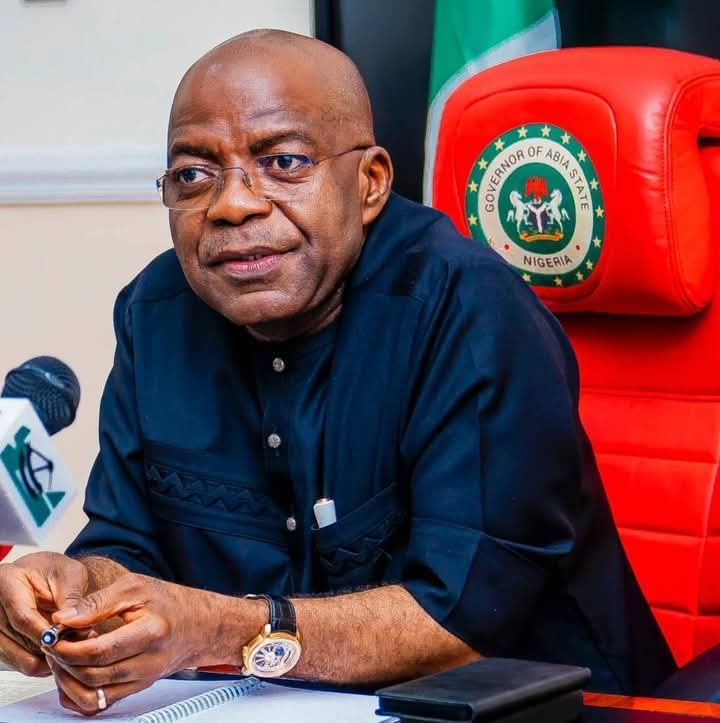Unfolding the story of Abia State’s transformation, Governor Alex Otti stands as a symbol of determined leadership anchored in vision, discipline, and service. His approach to governance mirrors the timeless qualities that defined global icons like Lee Kuan Yew of Singapore, Paul Kagame of Rwanda, and the late Nelson Mandela of South Africa, leaders who understood that building nations required more than good intentions; it demanded courage, clarity, and a willingness to challenge the status quo.
From the outset of his administration, Dr. Otti made it clear that leadership, to him, is not about titles or ceremony, but about results. His refusal to be encumbered by political baggage and transactional politics has positioned him uniquely among contemporary Nigerian governors. Like the world leaders he is often compared to, Otti is not driven by short-term popularity but by a long-term vision for posterity.
One of the defining elements of Otti’s leadership is his emphasis on systems over slogans. In just two years, he has dismantled the structures of inefficiency that plagued Abia for decades. Echoing Lee Kuan Yew’s belief in institutional discipline and data-driven governance, Otti has prioritised transparency, accountability, and service delivery, creating a culture of public service that values competence over connections.
His strategic investments in infrastructure, healthcare, education, and security are reminiscent of Rwanda’s Paul Kagame, who turned a post-genocide nation into one of Africa’s fastest-growing economies. In Aba, Otti is championing a reconstruction agenda with a clarity of purpose that has turned the commercial hub into a major construction site. Roads once abandoned have become arteries of commerce again, attracting both local and diaspora investment.
Much like Mandela, Otti recognises the moral weight of leadership. His commitment to fiscal discipline, workers’ welfare, and restoring dignity to governance reflects an understanding that good leadership is, at its core, a human project. It is not just about building structures, but building trust and he has made measurable progress in doing both.
Leadership scholars have long argued that what sets transformational leaders apart is not charisma, but consistency. Otti’s meticulous, quiet style may not grab headlines in the sensational manner of others, but it is effective. His work ethic punctual, intentional, data-conscious is gradually becoming the cultural DNA of governance in Abia.
Perhaps one of the most striking features of the Otti doctrine is his belief in people. He is not a leader who hoards ideas; rather, he surrounds himself with competent technocrats, empowers civil servants, and listens deeply to communities. This inclusive model of leadership borrows from the playbooks of successful nations where the leader is only as effective as the quality of his team.
Governor Otti’s reforms are not accidental; they are the result of a carefully nurtured mindset shaped by years in finance, policy, and civic engagement. His time as an economist and former bank chief infused him with a results-oriented logic that now guides public spending in Abia. Every project has a timeline, every plan a performance matrix.
Where others see impossibility, Otti sees design challenges. Where others lament revenue shortfalls, he seeks partnerships and innovations. He has often stated that the wealth of a state lies not beneath its soil but in the ingenuity of its people. This philosophy has informed his youth development agenda, aimed at unlocking the potential of Abia’s vibrant young population.
Observers note that his leadership style is not reactive but proactive. He does not wait for crisis to reveal capacity; he prepares for it. As the national economic shocks continue, Abia’s fiscal discipline shields it from extreme fallout, allowing the state to maintain salaries, keep contractors engaged, and continue its development programmes.
In a political environment often marred by excuses and inertia, Otti's hands-on, disciplined approach feels like a breath of fresh air. He is not merely governing; he is modelling a new paradigm for what is possible in Nigerian subnational leadership one where competence is not a luxury, but the baseline.
For Abians, the dividends are not abstract they are tangible, visible in cleaner streets, smoother roads, safer neighbourhoods, and more responsive institutions. And for Nigerians watching from afar, Otti’s rise is a reminder that transformational leadership, though rare, is still possible.
If the arc of history truly bends towards justice and progress, then Governor Alex Otti is helping bend it with precision. His mindset, shaped by principle and practice, is a study in what it means to lead with vision and to do so in the interest of generations yet unborn.
Oluebube A. Chukwu PhD, writes from Umuahia

